
United Nations Security Council resolution 942, adopted on 23 September 1994, after reaffirming all resolutions on the situation in Bosnia and Herzegovina, the Council reinforced measures relating to safe areas under control of Bosnian Serb forces.
United Nations Security Council resolution 982, adopted unanimously on 31 March 1995, after reaffirming all resolutions on the situation in the former Yugoslavia in particular Resolution 947 (1994) concerning the United Nations Protection Force (UNPROFOR), the Council extended the mandate of UNPROFOR for additional period terminating 30 November 1995 and discussed operations in Croatia.

United Nations Security Council resolution 988, adopted on 21 April 1995, after reaffirming all resolutions on the situation in the former Yugoslavia, in particular resolutions 943 (1994) and 970 (1995), the Council noted measures by the Federal Republic of Yugoslavia to continue the border closure with Bosnia and Herzegovina and therefore extended the partial suspension of sanctions against Serbia and Montenegro for a further 75 days until 5 July 1995.

United Nations Security Council resolution 1031, adopted unanimously on 15 December 1995, after recalling all previous resolutions on the conflicts in the former Yugoslavia, the council, acting under Chapter VII of the United Nations Charter, discussed the transfer of authority from the United Nations Protection Force (UNPROFOR) to the multinational Implementation Force (IFOR).
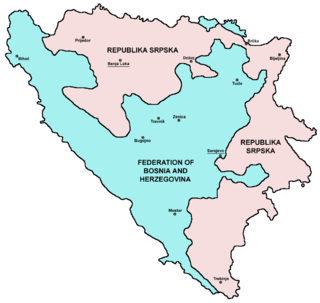
United Nations Security Council resolution 1035, adopted unanimously on 21 December 1995, after recalling Resolution 1031 (1995) and the Dayton Agreement, the Council authorised the establishment of a United Nations civilian police force, known as the International Police Task Force (IPTF) to carry out tasks in accordance with the agreement. It was part of the United Nations Mission in Bosnia and Herzegovina.

United Nations Security Council resolution 1046, adopted unanimously on 13 February 1996, after recalling previous resolutions including Resolution 1027 (1995) on the extension of the United Nations Preventive Deployment Force (UNPREDEP) until 30 May 1996, the Council authorised an increase in strength of UNPREDEP of an additional 50 military personnel for support in its operations.

United Nations Security Council resolution 1074, adopted unanimously on 1 October 1996, after recalling all resolutions on the conflicts in the former Yugoslavia and in particular Resolution 1022 (1995), the Council terminated all remaining measures against the Federal Republic of Yugoslavia from previous resolutions with immediate effect.
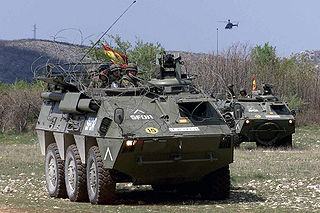
United Nations Security Council resolution 1088, adopted unanimously on 12 December 1996, after recalling all resolutions on the conflicts in the former Yugoslavia and in particular resolutions 1031 (1995) and 1035 (1995), the council, acting under Chapter VII of the United Nations Charter, authorised the creation of the Stabilisation Force (SFOR) in Bosnia and Herzegovina to replace the Implementation Force (IFOR).

United Nations Security Council resolution 1103, adopted unanimously on 31 March 1997, after recalling all resolutions on the conflicts in the former Yugoslavia and in particular resolutions 1035 (1995) and 1088 (1996), the Council authorised an increase in the strength of the United Nations Mission in Bosnia and Herzegovina (UNMIBH) in Bosnia and Herzegovina.

United Nations Security Council resolution 1107, adopted unanimously on 16 May 1997, after recalling Resolution 1103 (1997) on the United Nations Mission in Bosnia and Herzegovina (UNMIBH) and United Nations International Police Task Force (UN-IPTF) in Bosnia and Herzegovina, the Council authorised a further increase in the number of police personnel of UNMIBH.

United Nations Security Council resolution 1144, adopted unanimously on 19 December 1997, after recalling Resolution 1103 (1997) on the United Nations Mission in Bosnia and Herzegovina (UNMIBH) and United Nations International Police Task Force (UN-IPTF) in Bosnia and Herzegovina, the Council extended the mandate of both until 21 June 1998.
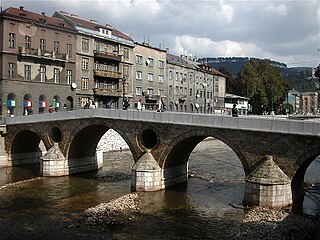
United Nations Security Council resolution 1174, adopted unanimously on 15 June 1998, after recalling resolutions 1031 (1995), 1035 (1995), 1088 (1996), 1103 (1997), 1107 (1997), 1144 (1997) and 1168 (1998), the Council extended the mandate of the United Nations Mission in Bosnia and Herzegovina (UNMIBH) for a period terminating on 21 June 1999 and authorised states participating in the NATO led Stabilisation Force (SFOR) to continue to do so for a further twelve months.

United Nations Security Council resolution 1184, adopted unanimously on 16 July 1998, after recalling previous resolutions concerning the conflicts in the former Yugoslavia, particularly resolutions 1168 (1998) and 1174 (1998), the council established a programme to monitor the court system in Bosnia and Herzegovina.

United Nations Security Council resolution 1247, adopted unanimously on 18 June 1999, after recalling resolutions 1031 (1995), 1035 (1995), 1088 (1996), 1103 (1997), 1107 (1997), 1144 (1997), 1168 (1998), 1174 (1998) and 1184 (1998), the Council extended the mandate of the United Nations Mission in Bosnia and Herzegovina (UNMIBH) for a period terminating on 21 June 2000 and authorised states participating in the NATO led Stabilisation Force (SFOR) to continue to do so for a further twelve months.
United Nations Security Council resolution 1305, adopted on 21 June 2000, after recalling resolutions 1031 (1995), 1035 (1995), 1088 (1996), 1103 (1997), 1107 (1997), 1144 (1997), 1168 (1998), 1174 (1998), 1184 (1998) and 1247 (1999), the Council extended the mandate of the United Nations Mission in Bosnia and Herzegovina (UNMIBH) for a period terminating on 19 June 2001 and authorised states participating in the NATO-led Stabilisation Force (SFOR) to continue to do so for a further twelve months.
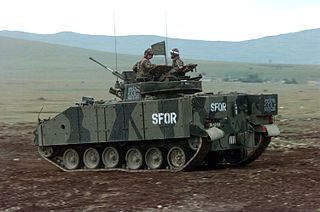
United Nations Security Council resolution 1357, adopted unanimously on 21 June 2001, after recalling resolutions 1031 (1995), 1035 (1995), 1088 (1996), 1103 (1997), 1107 (1997), 1144 (1997), 1168 (1998), 1174 (1998), 1184 (1998), 1247 (1999) and 1305 (2000), the council extended the mandate of the United Nations Mission in Bosnia and Herzegovina (UNMIBH) for a period until 21 June 2002 and authorised states participating in the NATO-led Stabilisation Force (SFOR) to continue to do so for a further twelve months.

United Nations Security Council resolution 1423, adopted unanimously on 12 July 2002, after recalling resolutions 1031 (1995), 1035 (1995), 1088 (1996), 1103 (1997), 1107 (1997), 1144 (1997), 1168 (1998), 1174 (1998), 1184 (1998), 1247 (1999), 1305 (2000), 1357 (2001) and 1396 (2002), the Council extended the mandate of the United Nations Mission in Bosnia and Herzegovina (UNMIBH) for a period until on 31 December 2002 and authorised states participating in the NATO-led Stabilisation Force (SFOR) to continue to do so for a further twelve months.

United Nations Security Council resolution 1491, adopted unanimously on 11 July 2003, after recalling resolutions 1031 (1995), 1088 (1996) and 1423 (2002) on the conflicts in the former Yugoslavia, the Council extended the mandate of the Stabilisation Force (SFOR) in Bosnia and Herzegovina for a further period of twelve months.

United Nations Security Council resolution 1551, adopted unanimously on 9 July 2004, after recalling previous resolutions on the conflicts in the former Yugoslavia, including resolutions 1031 (1995), 1088 (1996), 1423 (2002) and 1491 (2003), the council extended the mandate of the Stabilisation Force (SFOR) in Bosnia and Herzegovina for a further period of six months and welcomed the deployment of EUFOR Althea at the end of the SFOR's mandate.
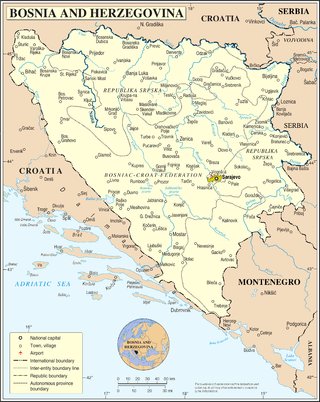
United Nations Security Council Resolution 1722, adopted unanimously on November 21, 2006, after recalling previous resolutions on the conflicts in the former Yugoslavia, including resolutions 1031 (1995), 1088 (1996), 1423 (2002), 1491 (2003), 1551 (2004), 1575 (2004) and 1639 (2005), the Council extended the mandate of EUFOR Althea in Bosnia and Herzegovina as a legal successor to the Stabilisation Force (SFOR) for a further twelve months.


















